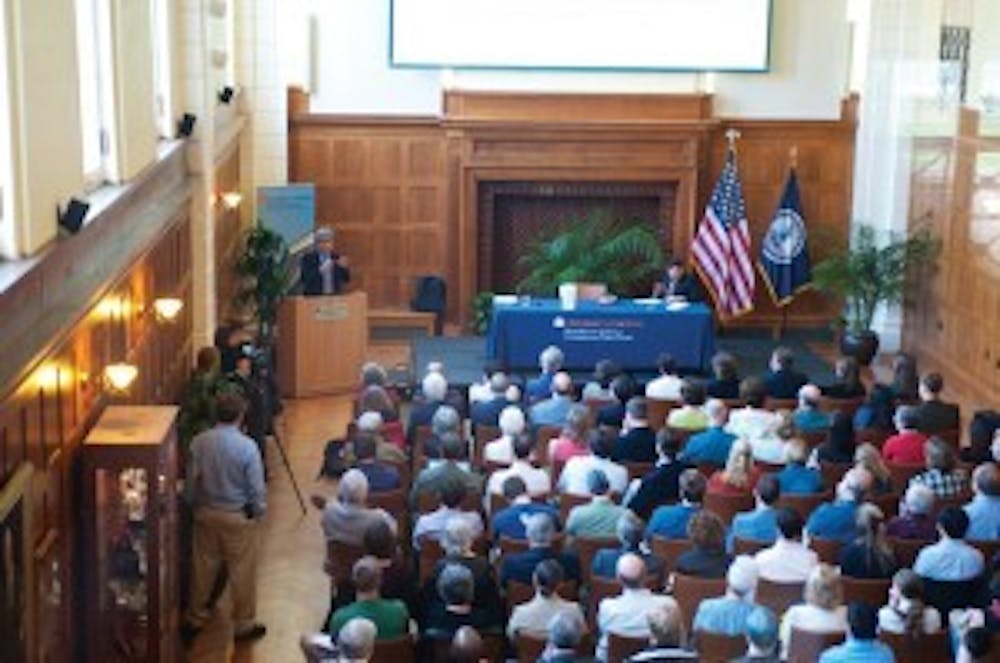David Brooks, an op-ed columnist for The New York Times, spoke yesterday with Psychology Prof. Jonathan Haidt at a talk hosted by the Batten School called "Morality and Politics: The Challenge of Public Policymaking."
Haidt opened the discussion with a 25-minute presentation about his book, "The Righteous Mind: Why Good People are Divided by Politics and Religion," which was released last week. Haidt outlined the key points of his book, which describes the origins of ethics and the manner in which they affect political discourse.
He said the United States' moral diversity is created by six values: fairness, proportionality, liberty, authority, sanctity and care.
Haidt said conservatives and liberals have ethical foundations which emphasize the importance of different morals. While conservatives consider a little of all six morals, liberals tend to emphasize fairness, care and authority, he said.
"Morality binds us into ideological teams that fight each other [and] blinds us to the fact that each team is composed of good people who have something to say," Haidt said.
Brooks followed Haidt's presentation, critiquing Haidt's work. Despite his disagreements with parts of the book, Brooks said it offered a great foundation for analyzing politics, providing "shafts of insight into how our moral drives are dividing us."
Brooks, however, said he was hesitant to reduce the interplay of morality and politics to specific morals divided along partisan lines. He said the morals Haidt attributed to conservatives and liberals cannot fully explain political changes which disrupt the moral foundations of parties.
Public policy could be improved by taking into account moral, social and spiritual concerns, Brooks said, instead of focusing on economic issues, as is the tendency in modern politics.
A thirty-minute question and answer session followed Brooks' critique, which allowed Brooks and Haidt to apply their theoretical concepts to current politicians and public policy.







